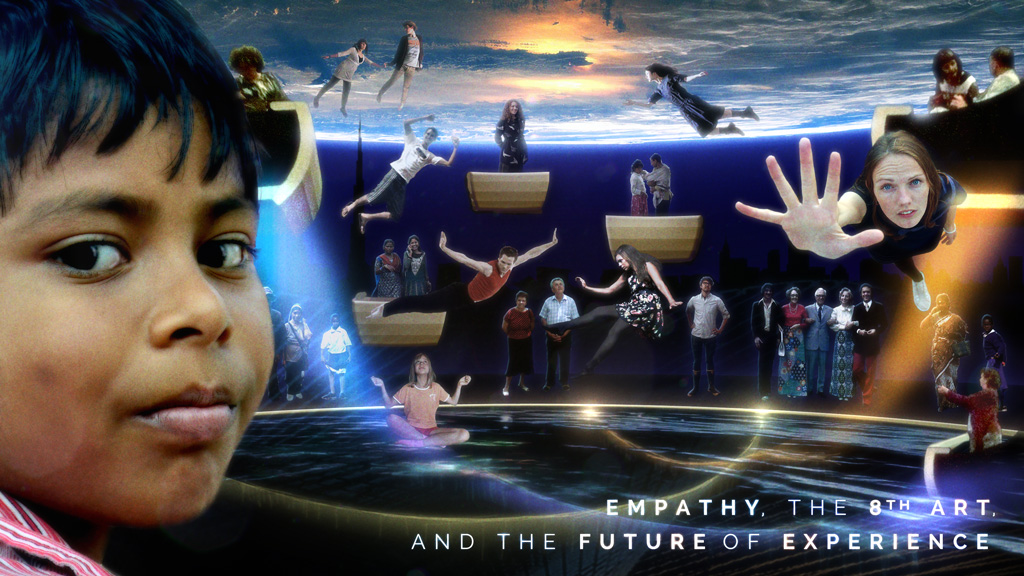
Professors Tod Machover (MIT Media Lab) and Meejin Yoon (Head, Dept. of Architecture)
With Tenzin Priyadarshi (Director of MIT’s Dalai Lama Center), Allegra Libonati (Artistic Associate, Harvard’s American Repertory Theater), Sep Kamvar (Director, MIT Media Lab's Social Computing Group), Rosalind Picard (Director, MIT Media Lab’s Affective Computing Group), Peter Torpey (Founder/Principle, The nth Art), Ben Bloomberg (PhD Candidate, MIT Media Lab) and other MIT, Harvard and international experts.
Wednesday, 2:30-5:00 pm, MIT Media Lab, E14-493
First class only in E14-240
The goal of this workshop-style course is to develop concepts, technologies and experiential prototypes worthy of being considered as part of a high-visibility World Expo Pavillion that would invoke profound levels of empathy in all visitors - with a special emphasis on young people - and would also establish paths and procedures for ongoing participation and intervention.
Nothing is as important in today’s troubled world as the process of eliminating prejudice and misunderstanding and replacing these with communication and empathy. This special course will explore the possibility of creating public experiences to dramatically increase individual and community awareness of the power of empathy, creating the inspiration and motivation to enact transformational change on an unprecedented scale. These issues will be explored in the context of a new kind of site-specific performative installation that might combine multisensory participation (and the radical new field of “8th Art”), new technologies, and immersive spatial design to encourage surprising connections between people previously unknown to each other, both onsite and around the world. We will study historical precedents from the art, architecture and public exposition spheres while investigating background issues of social and political transformation coupled with new technologies for measuring individual and group response.
Graduate students with strong backgrounds in the arts, design and architecture; advanced performance and interaction technologies; affective measurement and intervention; political and social change, and other relevant fields are invited to apply. Permission of instructors is required.